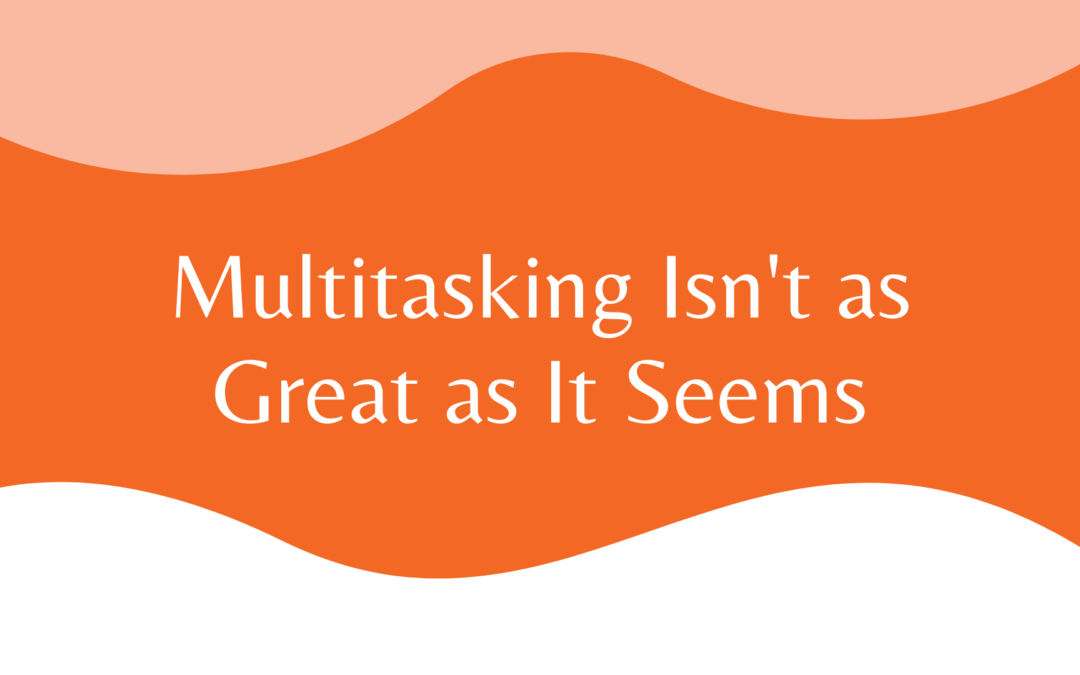Multitasking is often rightly referred to as screwing up several things at once. After screwing up quite a few things (writing assignments in the wrong notebooks while taking classes at the same time, forgetting the boiling milk while talking to someone), I can vouch for the statement.
Multitasking, in fact, doesn’t exist. You can’t do multiple things at once, you can just switch back and forth from tasks.
This switching comes with a price, though. And the price doesn’t make your work faster or easier. In fact, the whole process will actually take you more time and energy.
For starters, switching from task to task causes your brain to shift the attention from the first task to the next and vice versa. This means that your brain would require more energy to process the task and get acclimatized to it.
Moreover, this switching takes extra time, apart from the time taken to do the work itself. This implies that the amount of work that you can do in a given time drops sharply since a considerable portion of it is diverted to the switching.
The switching also decreases the quality of your work because multitasking requires you to shift your mindset from one subject to another quite often. The switching also decreases the quality of your work because it’s hard to stay focused on one subject for an extended period.
Changing gears from studying physics to studying English could result in worsening your performance in both subjects. While physics will require you to think logically and analytically, English will need you to be creative and expressive.
And lastly, you will make mistakes in your work.
You may miss the subtleties of language while writing in English because you are used to thinking like a physicist. Similarly, you may miss a step in solving a physics problem because you were thinking about English problems instead.
As a result, you lose time and energy fixing the mistakes that you have made either from neglecting the subtleties of language or from jumping to conclusions.
In short, multitasking not only drains your brain’s resources, takes up your time but also decreases the quality of your work.
The first thing you can do to avoid multitasking is doing its opposite – single-tasking. Avoid doing multiple things at once by taking on one task, committing to it and finishing it before tackling the next.
You could try the Pomodoro technique where you focus on your task for short bursts of 25 minutes and then take a break for 5 minutes. It can even be modified as per personal preferences.
You should also consider creating a list of your tasks according to priority so that you know which task needs to be tackled first.
And finally, be prepared to say no to those things that come in the way of you and getting things done.
Recap for memory:
- There’s no such thing as multitasking – just switching from one task to another rapidly.
- When multitasking, you tend to make more errors, get less done and decrease the quality of your work.
- You can avoid multitasking by setting up your priorities, focusing in short bursts and saying no to distractions.

